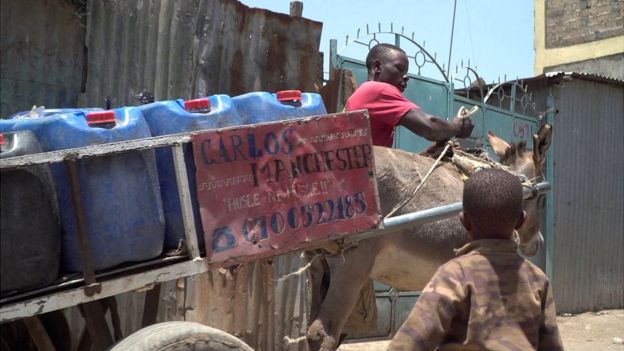Donkeys in Africa are essential for transportation and farming, especially for poorer communities. Donkeys are companions too which is demonstrated by the story of Anthony Maupe Wanyama, a water deliveryman from Kenya, who had his donkey named Carlos stolen from him in the night. When Anthony found Carlos his skin had been removed and he was dead in the street.
In China the demand for donkey skin is huge, for they are used in health foods and medicinal purposes. The author of the article, Alastair Leithead, includes a statistic that "China's donkey population dropped from 11m in 1990 to 3m today, based on government data"(BBC, Leithead). Donkey skin in Africa can be sold for $388 per kilo. Therefore, the number of donkey's being stolen has increased and at least 150 donkeys are slaughtered at slaughterhouses a day.
In addition to Anthony, many other families have lost their only source of income and can no longer afford day-to-day expenses. The impact of the demand for Donkey hide has affected Africa so badly that "countries including Uganda, Tanzania, Botswana, Niger, Burkina Faso, Mali, and Senegal have banned China from buying their donkey products"(BBC, Leithead). Unfortunately, despite being banned from their main source of donkey in Africa, China has now turned to places like Peru and Brazil, to satisfy their cravings for donkey.
http://www.bbc.com/news/world-africa-41524710




